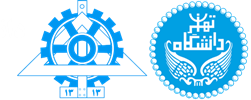Multispectral and Hyperspectral RS Laboratory - دانشکده مهندسی نقشه برداری و اطلاعات مکانی geospatialeng
- Multispectral and Hyperspectral RS
- Three-Dimensional Remote Sensing
- Short-Range Photogrammetry
- Satellite Geodesy Laboratory
- Radar Interferometry and Deformation Monitoring
- All Locations Labratory
- Geodynamic Studies and Modeling Laboratory
-
Intelligent Remote Sensing Data Analysis Laboratory
- Location-Based Hydrology Laboratory
- Land Administration in Smart Cities
- Microwave Remote Sensing Laboratory
-
Gravimetry Laboratory
- Quantum algorithms Labratory
- Back
Multispectral and Hyperspectral Remote Sensing Laboratory

Laboratory supervisor:
Mahdi HasanlouAssociate Professor Tel: +982161114525 Email: hasanlou@ut.ac.ir WebSite: https://rslab.ut.ac.ir |
 |
Approximately two centuries after the inception of remote sensing with the first aerial photograph from a balloon, today, remote sensing has become a standard method for producing spatial data and holds an important position in various sciences. In recent years, the launch of numerous satellites equipped with highly advanced sensors, both spatially and radiometrically, has placed this science and technology in a unique position. This development has advanced to the point where remote sensing is now seen as a powerful solution in addressing numerous issues across various scientific fields.
In general, the nature of remote sensing stems from the interaction of the environment and features with electromagnetic waves. Based on this, different types of remote sensing and their applications are categorized. Due to the close connection between multispectral and hyperspectral images and the processing of satellite images, and the expertise of this field in remote sensing, the presence of this laboratory in this specialization has become increasingly necessary and is an integral part of the remote sensing group. Furthermore, the extensive applications of remote sensing in various sciences and its interdisciplinary connection with other fields have made long-term planning and industry collaboration an essential part of the laboratory’s goals. Additionally, the third development plan of the university, aligned with internationalization, is one of the key objectives for establishing this laboratory.
About two centuries after the idea of a remote sensor with an aerial photograph of a balloon began, today the remote sensor has found an important place among various sciences as one of the standard methods of producing spatial data. In recent years, the launch of several satellites with highly advanced spatial and radiometric sensors has put this new science and technology in a special position. This process has progressed to the point that it has proposed the measurement of the distance as a powerful solution to the problems of many sciences.
Some of the research and operational fields of this laboratory include:
Environment
Natural Resources
Agriculture
Forestry
Space
Fundamental Research
Oceanography
Examples of Laboratory Activities
The following research has been conducted by students in the laboratory:

Monitoring and Mapping of Oak Forest Degradation in Western Iran (National Project)

Study and Monitoring of Coral Reefs (Coral Coastlines of Southern Iran)

Monitoring of Vegetation Cover and Cultivated Area of Strategic Crops Using Multispectral and Hyperspectral Drone Images
For more information about the research activities conducted and ongoing in the laboratory, please visit the website: https://rslab.ut.ac.ir.
You can download the laboratory catalog from here.


